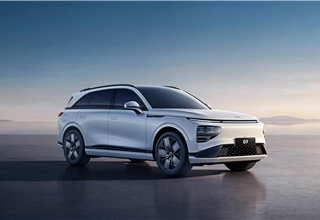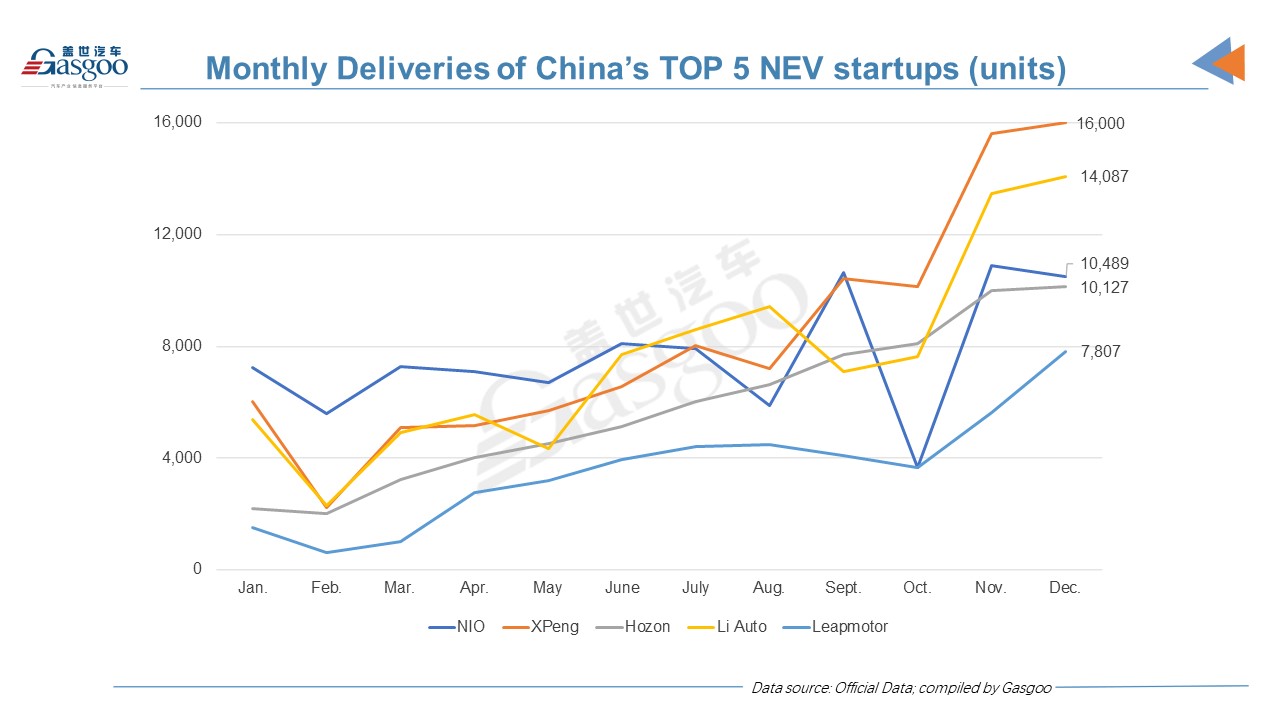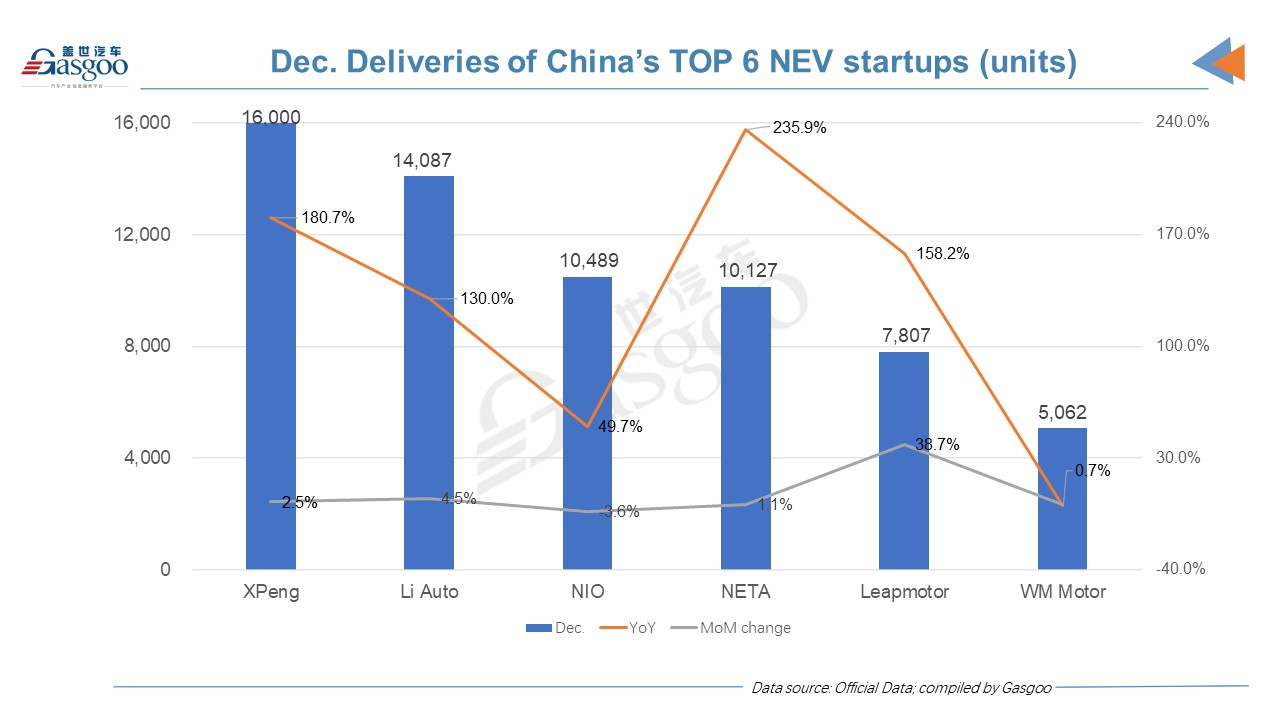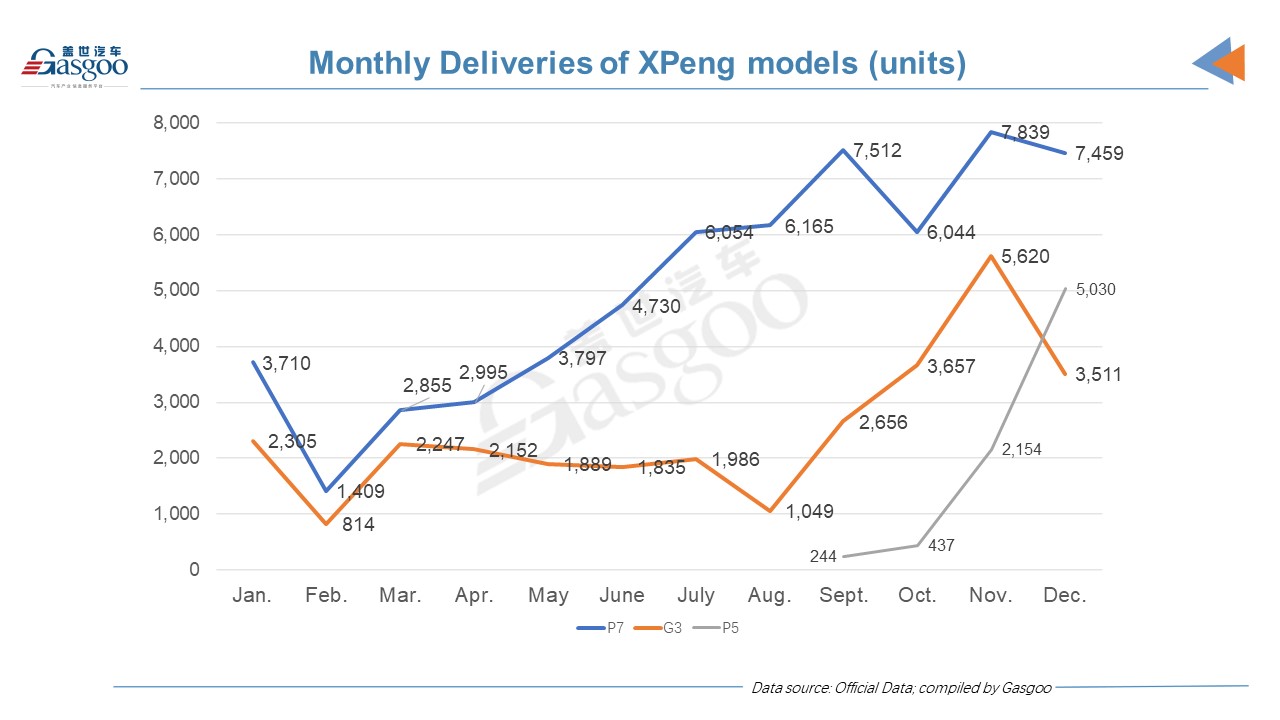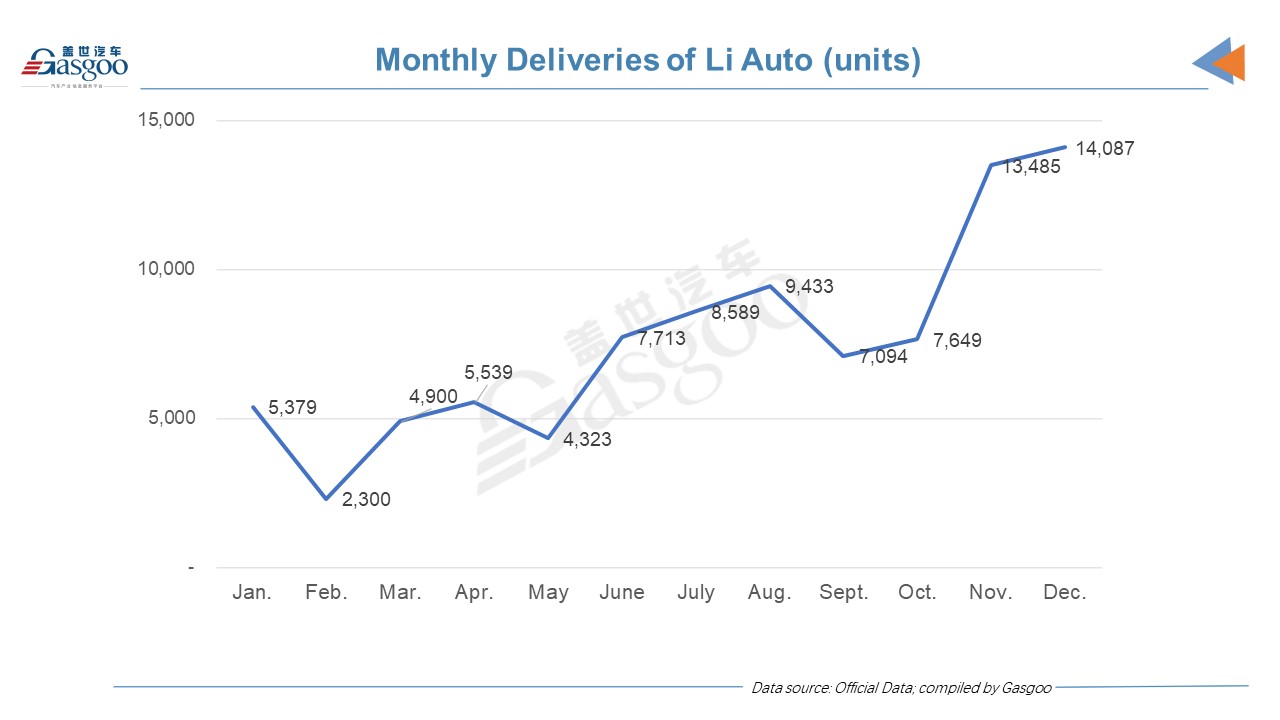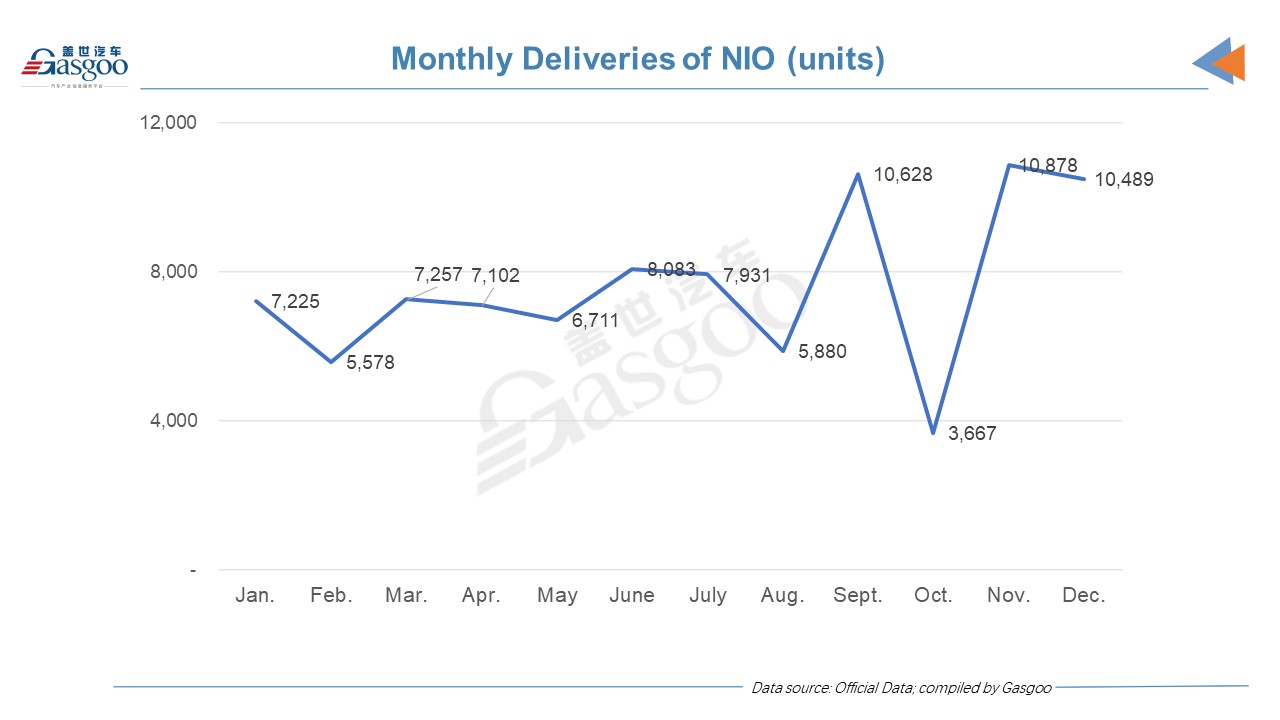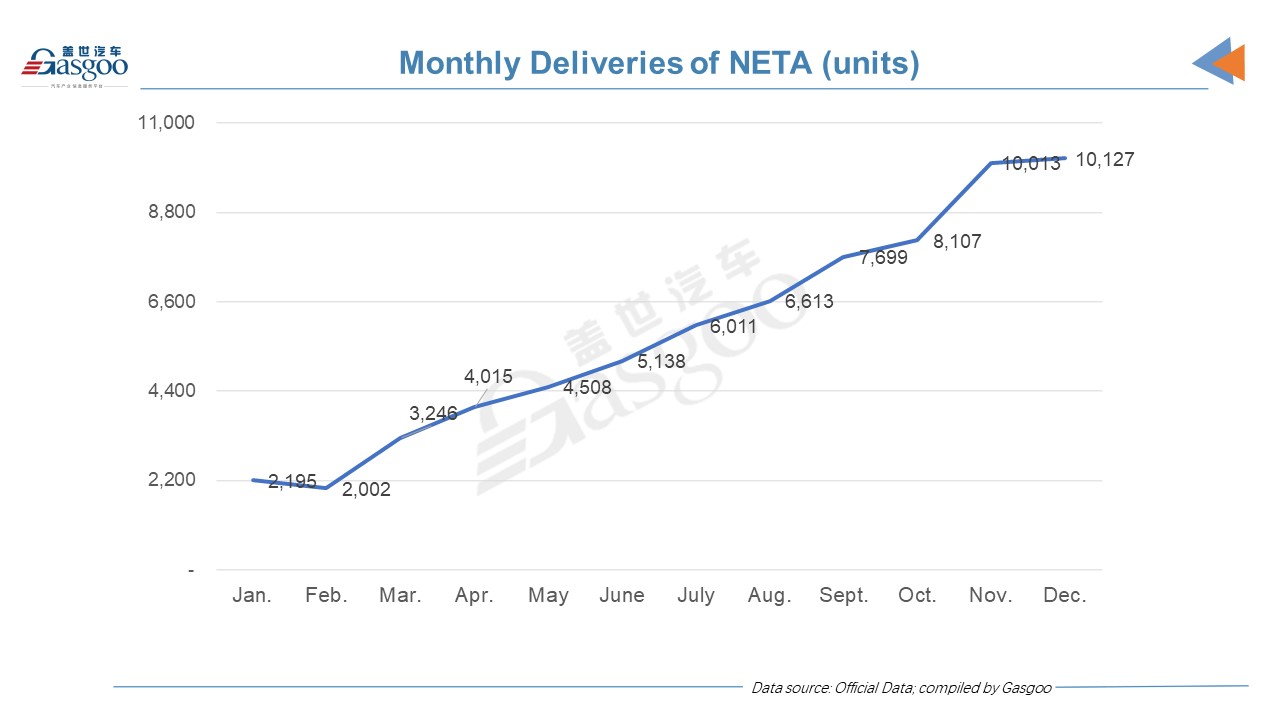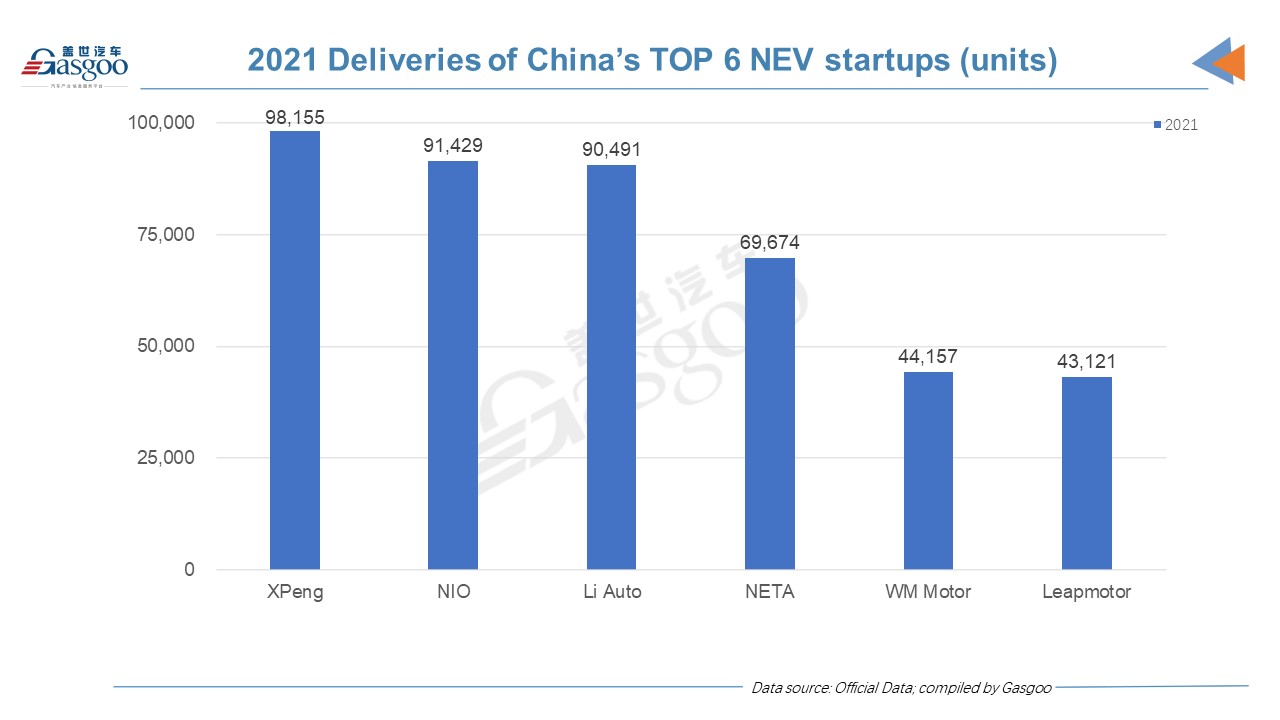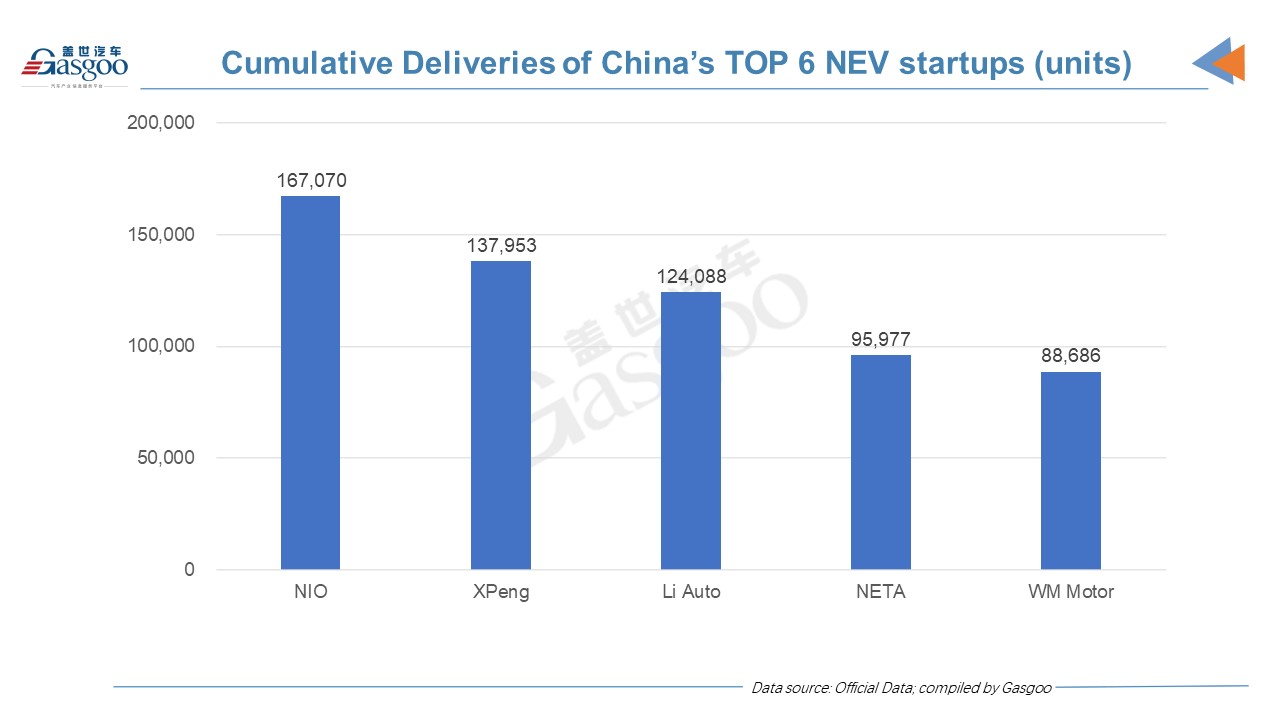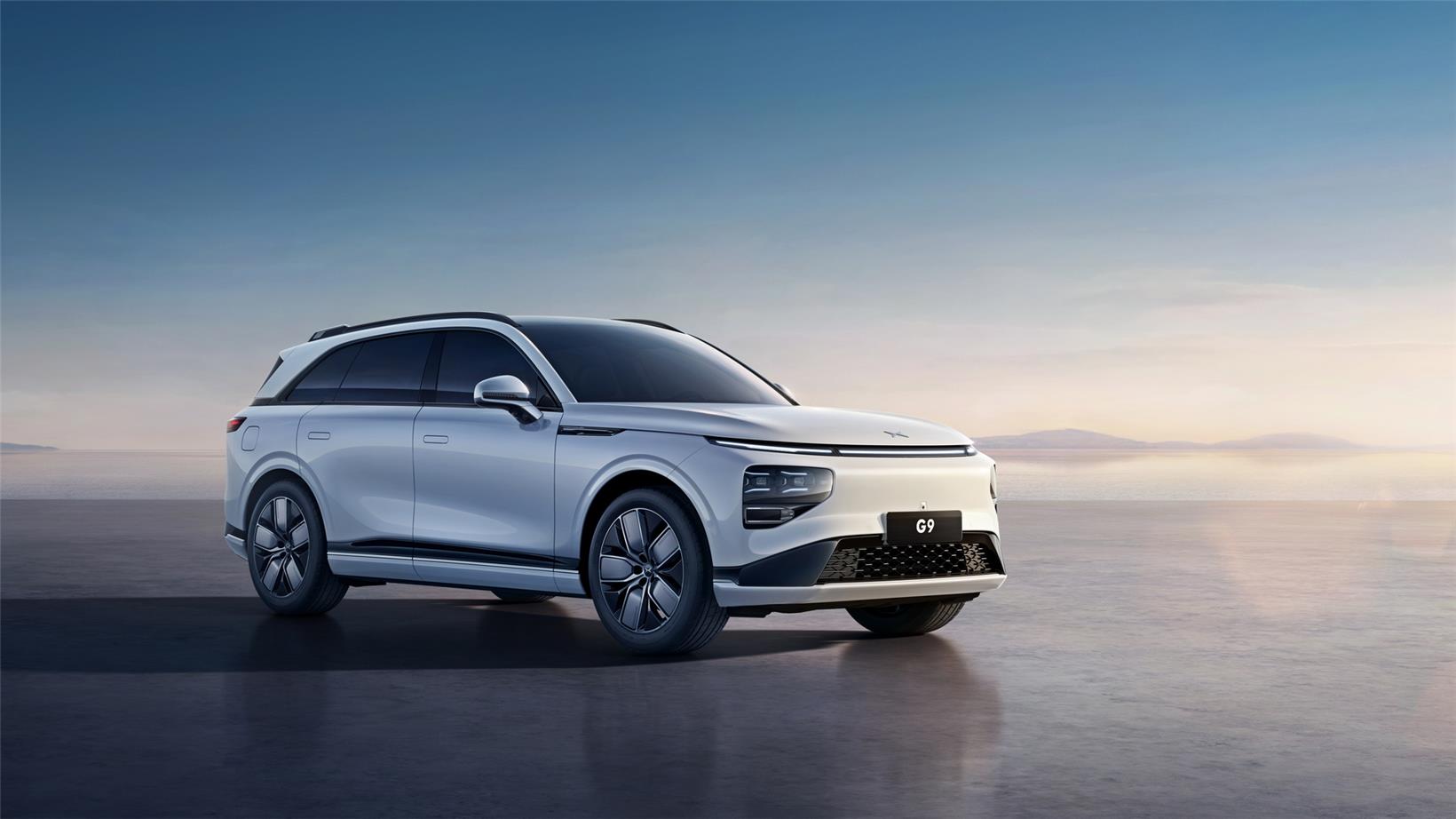On the very first day of 2022, China’s top automobile startups successively announced their delivery results.
December 2021 marked the first month when four startups had delivery volume of over 10,000 units. By monthly deliveries, XPeng remained the most popular startup with deliveries hitting a new high and soaring 166% compared with January 2021. The Guangzhou-based automaker had been the champion for three consecutive months and is the only startup, up to now, whose monthly deliveries have surpassed 10,000 for four months in a row.
WM Motor’s year-on-year change of December delivery is not available.
XPeng’s three models cover a price range from RMB150,000 ($23,610) to RMB300,000 ($47,220). The P5, whose scale deliveries started in September last year, was the main growth driver with a month-on-month surge of 133.5%, offsetting the other two models’ delivery decline. The P7 was still the model with the highest monthly deliveries.
Different from XPeng and NIO, which has several models on the market, Li Auto only sells one product, the Li ONE, whose new version was unveiled in May. The fact that consumers were waiting for the new version may explain the monthly decline in May. Another month-over-month decline happened in September as automotive chip supply shortage hit the company hard at that time.
NIO ranked third by December deliveries, which saw a month-over-month decline of 3.6%. A person familiar with the matter said that there was a delay in customs clearance for a batch of automotive chips, which affected its monthly deliveries. In fact, in the second half of last year, NIO outsold other startups only once. In October, its deliveries even fell to 3,667 vehicles.
Unlike XPeng, Li Auto and NIO, the so-called second tier startups, including Hozon Auto’s NETA brand and Leapmotor, target the A00-class battery electric vehicle segment. NETA is the only brand among the top 5 startups whose monthly deliveries had seen consecutive growth for ten months. In the last two months, the brand’s monthly deliveries also achieved the milestone of over 10,000 units.
By 2021 annual deliveries, none of those startups achieved the milestone of 100,000 units, but three of them had annual deliveries over 90,000. XPeng delivered 98,155 vehicles in 2021, outselling NIO. Li Auto, ranking third, had a distant lead over the fourth.
But by cumulative deliveries, NIO ranked first. XPeng and Li Auto have also delivered more than 120,000 vehicles. NETA’s cumulative deliveries are very close to 100,000 units.
Several new models from those startups will start delivery this year. NIO said it will deliver three vehicle models developed on the NT2.0 (NIO Technology Platform 2.0), including the ET5 and the ET7, which have been unveiled in 2021. The other one is likely to be an SUV model, namely ES7, whose delivery is said to start at the end of this year. Deliveries of the ET7 are expected to start from March 28 while deliveries of the ET5 may commence from September this year.
For this year, XPeng will deliver its fourth mass production model, the G9, in the third quarter and plans to explore the Robotaxi service in the second half of 2022. The G9, a flagship smart SUV model unveiled at the Auto Guangzhou 2021, is its first mass-produced smart EV model designed and developed from the very beginning for both international markets and China’s market.
Photo credit: XPeng
Li Auto will launch the first model on its X platform, the X01, a full-size premium range-extended electric SUV, followed by two range-extended SUVs built on the X platform in 2023. Deliveries of the X01 are said to start at the end of this year. The Beijing-based company also aims to launch at least two high-voltage battery electric vehicle models per year from 2023 on, based on its Whale and Shark platforms.
Credit: Source link


